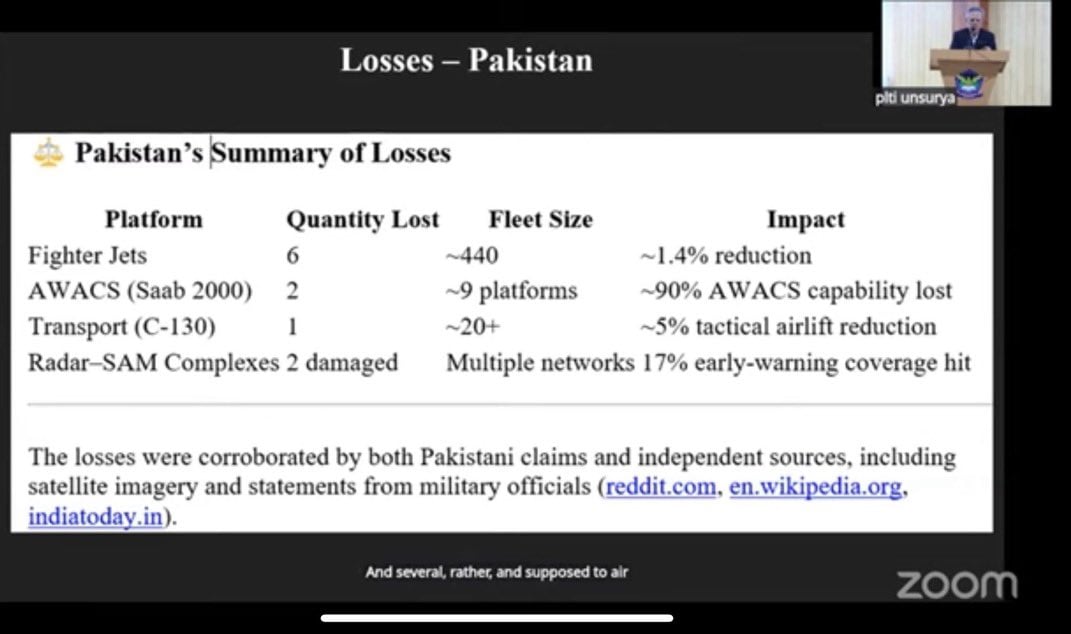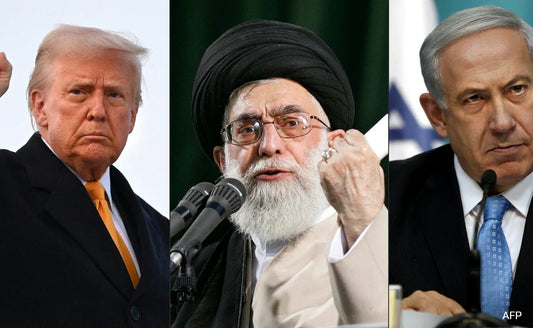Indonesian Air Force Seminar Analyzes Strategic Impact of India-Pakistan Aerial Conflict

The Indonesian Air Force recently hosted a series of seminars at its Air Force University, centering on the May 2025 aerial conflict between India and Pakistan and its broader strategic consequences. The event, titled “International Seminar: Analysis of the Pakistan–India Air Battle and Indonesia’s Anticipatory Strategies from the Perspective of Air Power,” provided an in-depth examination of the brief but significant air war that unfolded between the two nations earlier this year.
During the seminars, detailed accounts of the operational aspects and strategic takeaways from the conflict were presented. Speakers shared data illustrating the damage suffered by the Pakistan Air Force (PAF), supported by slides and thorough analysis. The information revealed that the Indian Air Force (IAF) managed to destroy six Pakistani fighter jets, two Saab-2000 Erieye airborne warning aircraft, and one C-130 transport aircraft. Additionally, significant damage was reported at key airbases, highlighting India's dominance in the aerial conflict.
India's perspective was represented by Captain Shiv Kumar, the Defence Attaché at the Indian Embassy in Jakarta, who contributed to discussions on air power and defense strategy. On the other hand, the Pakistani Defence Attaché chose not to participate, objecting to the use of satellite imagery depicting damage to Pakistani military sites in the event’s official materials.
The examination of the India-Pakistan air battle in an educational and defense context underscores Indonesia's increasing interest in air power dynamics and its necessity for anticipatory strategies. The seminar also explored topics beyond South Asia, such as the significance of early warning systems, the changing role of drones and surveillance technology, and regional cooperative efforts.
The seminar’s conclusions pointed to a shift in the balance of air power in South Asia, particularly with Pakistan's loss of airborne early warning assets. This was seen as a reduction in Pakistan’s real-time situational awareness and overall air defense capabilities. Experts at the event discussed the repercussions of these losses for Pakistan and emphasized the importance of enhanced resilience in future air engagements.
The Indonesian Air Force's initiative sparked broader conversations about the challenge of maintaining neutrality in international defense forums, particularly when discussing operational data from recent conflicts. Nonetheless, the sessions were commended for their analytical rigor and relevance to efforts in modernizing air forces across Southeast Asia.
As air power continues to hold a crucial role in regional security, the Indonesian Air Force's engagement with these issues demonstrates its commitment to staying informed and prepared amid a shifting geopolitical landscape.



















